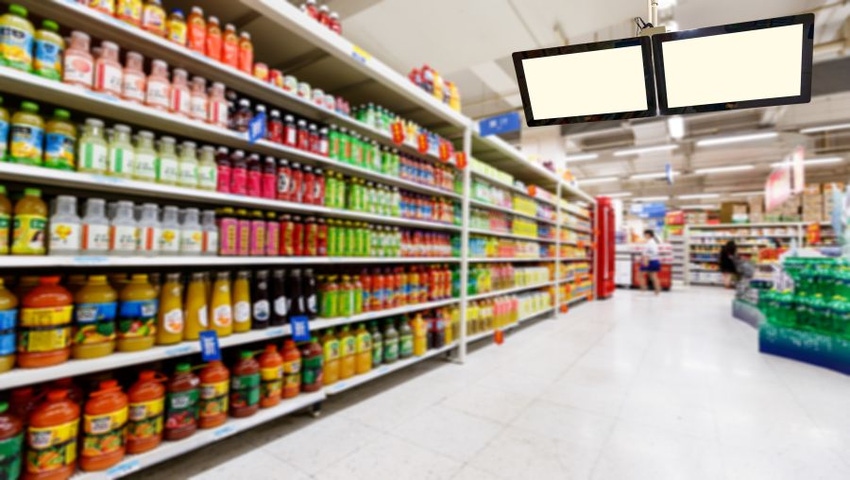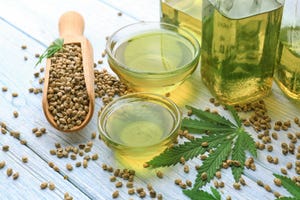While last year was a lackluster year for U.S. food and beverage consumer packaged goods (CPGs) sales, many of the industry’s top performers in 2016 generated growth by delivering on the consumers’ desire for convenient nutrition and for indulgences such as confectionery and alcohol, according to new research from The Boston Consulting Group (BCG) and IRI Worldwide.

While last year was a lackluster year for U.S. food and beverage retail sales, many of the industry’s top performers in 2016 generated growth by delivering on the consumers’ desire for convenient nutrition and for indulgences such as confectionery and alcohol, according to new research from The Boston Consulting Group (BCG) and IRI Worldwide.
Companies such as Blue Diamond, BodyArmor, Califia Farms, Bragg and The Wonderful Company, which market convenient foods and “functional" beverages that contain plant-based ingredients that promote nutrition or aim at boosting energy, were among the CPG growth leaders in 2016. Also among the industry’s best performers were companies that derive much of their sales from indulgences, such as Mars, Hershey’s, PepsiCo, Hostess and Constellation Brands. Sales of ice cream, spirits, wine, and salty snacks all grew by 4 percent to 5 percent—about three times faster than retail sales in the U.S. CPG industry overall.
Other CPG industry best performers were large and midsize companies, such as Johnson & Johnson and Unilever, which acquired small makers of health-minded foods and beverages and even personal care products containing natural ingredients. Data also found health and beauty aids that convey “wellness" were one of the strong CPG growth categories in 2016.
“Our research shows that the growing popularity of convenient nutrition and wellness remains one of the most powerful trends in the U.S. consumer packaged goods industry," said Jim Brennan, a BCG partner and co-author of the study. “But this does not mean that American consumers’ craving for indulgences has diminished."
The findings were based on the fifth annual analysis by BCG and IRI of the growth performance of more than 400 CPG companies with annual U.S. retail sales of more than $100 million in measured retail channels. The channels include grocery, drug, mass-merchandise and convenience stores. The study included both public and private CPG companies and focused on what consumers actually bought in measured channels, as opposed to what factories shipped. Research revealed U.S. CPG retail sales in measured channels rose by only 1.4 percent, to $681 billion, compared to 3 percent in 2015. The sluggish sales growth was due primarily to price deflation—rather than lower unit sales. Price growth dropped to 0.8 percent overall in 2016, largely because of shifts in prices for commodities such as milk and eggs, after rising to 2.3 percent on average in the previous four years. Rising online purchases also contributed to slower CPG sales growth in conventional retail stores.
The growth leaders were able to boost their revenue with higher unit sales, as well as through pricing strategies and management of their product mix. In the rest of the CPG industry, by contrast, unit sales fell.
Reynolds American topped the CPG growth-leader list of large companies for the second year in a row, followed by Johnson & Johnson, Tyson Foods, Grupo Bimbo and Mars. Leaders among midsize companies included Chobani, Hostess, Energizer Holdings, Constellation Brands and Starbucks. Growth leaders in small companies were BodyArmor, Idahoan Foods, Bragg, Bai Brands, and Daisy. The research also found that companies with sales of less than $1 billion boosted their share of the US CPG market from 25 percent in 2015 to 25.6 percent in 2016. Over the past five years, large companies have ceded over three percentage points in share—or around $20 billion in industry sales—to small ones.
“Functional beverages"—nonalcoholic drinks promoted as having a purpose, such as improving health, boosting energy, or managing weight—was one of the hottest categories of 2016. The best performer among small CPG companies, for example, was BodyArmor, a premium sports drink brand in which basketball legend Kobe Bryant is a major shareholder. Plant-based food and beverage brands also are well represented on the lists of growth leaders. Califia Farms, for example, markets beverages with ingredients such as almond and macadamia milk, ginger, turmeric and Central American coffee sourced by direct trade.
One important trend in 2016 was that large and midsize companies acquired personal care and food and beverage brands with wellness themes. Unilever, for example, bought Seventh Generation, a brand of eco-friendly cleaning and personal care products. Johnson & Johnson bought OGX, whose line of personal care products includes ingredients such as coconut oil, bamboo fiber and tsubaki blossom. Dr. Pepper Snapple Group recently completed the acquisition of Bai Brands, whose line includes enhanced water, carbonated flavored water, coconut water, and premium ready-to-drink teas.
“Even in a sluggish market, the CPG growth leaders show that opportunities abound for companies that understand evolving consumer preferences and build a strategy to capture the opportunities," said Peri Edelstein, a BCG partner and a coauthor of the study. “The key to sustained success in this rapidly evolving market is to follow consumers around the clock and compete in the marketplace with the mentality of a startup."
About the Author(s)
You May Also Like






.png?width=800&auto=webp&quality=80&disable=upscale)